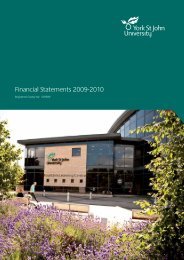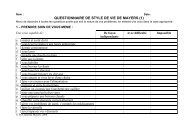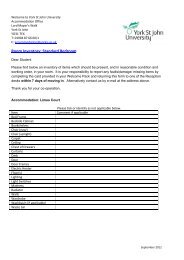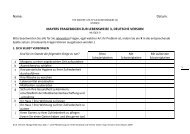Abstracts - York St John University
Abstracts - York St John University
Abstracts - York St John University
You also want an ePaper? Increase the reach of your titles
YUMPU automatically turns print PDFs into web optimized ePapers that Google loves.
This potential of video recordings to perform something that was not yet there would later<br />
be the reason that Mroué decided to stop performing Three Posters when after 9/11 the<br />
audience started to see the video testimonies in a different way. This potential however, I<br />
will argue, is characteristic for how in a situation of ´incredulity towards metanarratives´<br />
(Lyotard) performativity replaces traditional goals of knowledge, truth and liberation. In<br />
this situation, the performance of the freedom fighter trembling in the face of the camera<br />
that will challenge him forth as martyr, is the example par excellence of the terror observed<br />
by Lyotard, the terror described by McKenzie as the pressure to perform-‐-‐or else.<br />
Maaike Bleeker is a professor of Theatre <strong>St</strong>udies at Utrecht <strong>University</strong>. She graduated in<br />
Art History, Theatre <strong>St</strong>udies and Philosophy and received her PhD from the Amsterdam<br />
School for Cultural Analysis. She combines her academic work with a practice as<br />
dramaturge in theatre and dance. She is the author of Visuality in the Theatre. The Locus of<br />
Looking (Palgrave MacMillan) and editor of (among others) Anatomy Live. Performance<br />
and the Operating Theatre. She is President of Performance <strong>St</strong>udies international (PSi).<br />
Panel 1. Liquid Spaces, Performative Architectures<br />
Concepts towards the realisation of the Technophenomenological Being: the liquid<br />
dimensionality of kinaesthetic self and immersive worlds<br />
Craig Vear (De Montfort <strong>University</strong>)<br />
This paper will discuss current research in the development of a performance concept of<br />
the Technophenomenological Being; a theoretical concept inspired by Amelia Jones’ notion<br />
of the ‘metaphysical transcendence of mind-‐expanding machines’ (Jones 1998: 205). It will<br />
discuss this concept from three perspectives: 1) the development of a technically mediated<br />
environment using immersive VR and binaural sound image; 2) Natural Interfaces for fluid<br />
immersion, and 3) a framework for the cognitive-‐creative development of the performer.<br />
It will draw together seemingly disparate discourse from audience modalities of Digital<br />
Opera, performance practice of hyper-‐instruments, fluid immersion in online gaming and<br />
McGonigal’s notion of the gaming Gesamtkunstwerk, linking into philosophical frameworks<br />
from Antonio Damasio’s work into consciousness and Merleau-‐Ponty’s phenomenology<br />
including the question ‘where are we to put the limit between body and the world, since<br />
the world is flesh?’<br />
Drawing these together with current practice-‐as-‐research from the Intermediality and<br />
Performance Research Group (De Montfort <strong>University</strong>), I aim to articulate my imperative<br />
and arrive at the concept of the Technophenomenological Being that is not dwelling “within”<br />
the relationship between technology and human performer (such as juxtaposition) or<br />
“among” this relationship (such as a second skin) or even the “prosthetic God”; but is rather<br />
as.<br />
Craig Vear is a senior lecturer in Performing Arts specialising in music and digital arts<br />
within the School of Art. He is an internationally recognised composer working within<br />
performance and technology. He is chair of the Intermediality and Performance research<br />
group and full member of the DORG: Digital Opera Research Group, and MTI: Music,<br />
Technology and Innovation. He won an Olivier award in 2012, went to Antarctica as<br />
composer-‐in-‐residence with the British Antarctic Survey (2003-‐4), and sold over 350,000<br />
albums with his band Cousteau.<br />
Cartesian Bodies and Euclidean Spaces<br />
2

















![â'Those [women] who feel strong and hope to find employment, a ...](https://img.yumpu.com/53506972/1/184x260/athose-women-who-feel-strong-and-hope-to-find-employment-a-.jpg?quality=85)